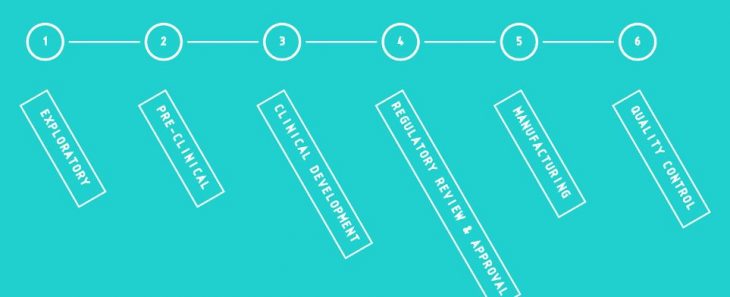This project, as part of the Blockchain for Cities workshop, investigates the use of integrating blockchain technology with the vaccine development process to envision the benefits in streamlining the process in a more open sources yet secure model. This research stems from the observation of the current developments with the COVID vaccine and how the process has been accelerated for solely financial gain, information isn’t shared efficiently, there are concerns about information security, and how mass production is expected to be very time consuming.
We look into the following six key stages of vaccine development and how blockchain can serve each best: exporatory, pre-clinical, clinical development, regulatory review, manufacturing, and quality control.

In the development stages, there are concerns about information sharing and security. Moving towards a more open sources blockchain model means that scientists and bio-tech firms can act as the consensus in order to validate the research findings in realtime. Additionally, making this information public can break silos between these research environments so they can work together on finding the best solution. In regulatory review, the food and drug administrations across the globe can also be actors in the system, approving the secure information from blockchain. For mass production and quality control, the blockchain would serve as a decentralized standardization model, of which the movement of vaccines would be able to be tracked in the same format.

Furthermore, the research looks into the role that cities can play in such a globalized blockchain model. Here, the research offers up its own ideas of how cities can leverage their urban fabric and data: identifying the right citizens to participate in clinical trials, evaluating buildings to provide the best manufacturing plants and refridgeration stations, and geographically strategizing the prioritization of vaccines.
Blockchain for Vaccine Discovery is a project of IAAC, Institute for Advanced Architecture of Catalonia developed at Master in City & Technology, in 2019 by: Students: Andrew Saltzman, Rashid Gilfanov Faculty: Jose Muñoz